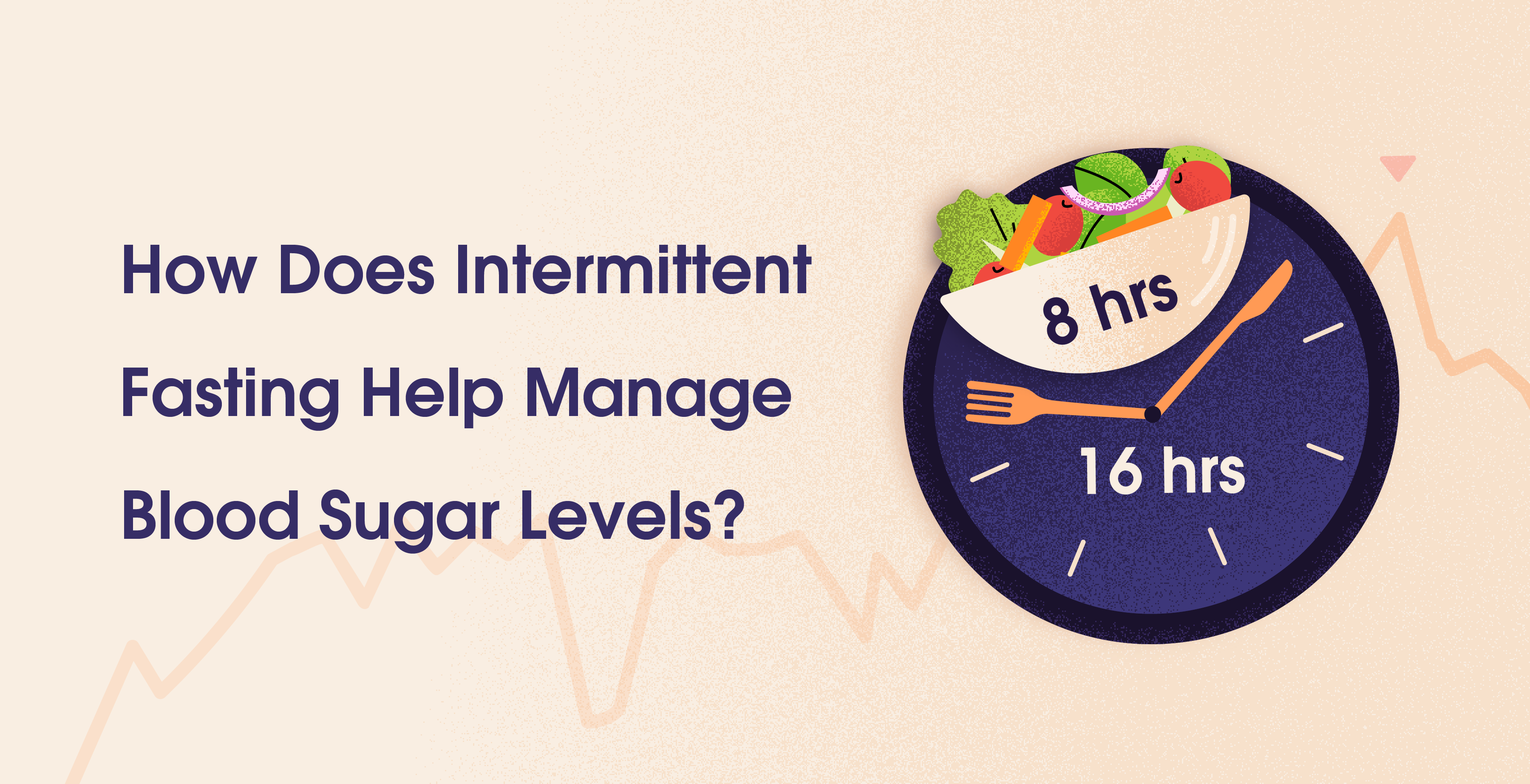Why Fermented Foods Are Essential for Gut Health
Oct 23, 2024
Sayfali Rawlani



Table Of Contents
Fermented foods have been around for ages, but they’re not just about tangy flavors or ancient traditions. These foods hold the secret to a healthier gut, and that’s why so many nutritionists, wellness experts, and even your friends are talking about them. If you're curious about why you should add these foods to your diet, it all boils down to one simple thing: they’re fantastic for your digestive system.
Highlights
Fermentation is a process where bacteria, yeast, or fungi break down sugars, enhancing flavor and creating probiotics that benefit gut health.
Fermented foods are full of probiotics that balance gut bacteria, aiding digestion and recovery after antibiotics.
Fermentation breaks down complex carbs, making food easier to digest and reducing bloating.
A healthy gut supports your immune system and reduces gut inflammation.
Fermented foods may improve mood by positively influencing the gut-brain connection.
Try yogurt, kefir, kimchi, sauerkraut, kombucha, miso, or tempeh for probiotic benefits.
Start with small portions and look for products labeled "live cultures" or "unpasteurized" for the best results.
What Exactly Is Fermentation?
Let’s start with the basics. Fermentation is a natural process where good bacteria, yeast, or fungi break down sugars in food. This process not only preserves food but also enhances its flavor. Think of yogurt, sauerkraut, kimchi, and kombucha – all of them get their signature tangy taste from fermentation. But there’s more to the story than just flavor. Fermentation creates probiotics, which are beneficial bacteria that do wonders for your gut health.
Your gut is home to trillions of microorganisms, often called the gut microbiome. Keeping these bacteria balanced and healthy is essential for overall well-being, and that’s where fermented foods come in. They help introduce more of the good bacteria to your gut, promoting better digestion, stronger immunity, and even improved mood.
Why Fermented Foods Matter for Your Gut
Loaded with Probiotics
What is the number one reason for loving fermented foods? They’re packed with probiotics. When you eat fermented foods, you’re giving your gut a healthy dose of these beneficial bacteria. Probiotics help maintain a balanced gut by encouraging the growth of good bacteria and keeping the harmful ones in check. This balance is key to better digestion and can even prevent problems like bloating, gas, or constipation.
Have you ever taken antibiotics and found your stomach a little off afterward? That’s because antibiotics kill both the bad and good bacteria. Probiotic-rich foods can help restore that balance, speeding up your recovery and making your gut stronger.
Easier Digestion
Here’s another reason fermented foods are great: they’re much easier to digest. The fermentation process breaks down complex carbs and sugars, making the food easier on your digestive system. For example, if you're lactose intolerant, you might find that you can tolerate yogurt or kefir more easily than regular milk. That’s because the bacteria in these fermented foods have already done the hard work of breaking down lactose for you.
So, if you struggle with bloating or other digestive discomforts, adding fermented foods to your diet might be the answer. They help keep things moving smoothly in your digestive tract, which means less discomfort after meals.
Boost Your Immune System
Did you know that a huge portion of your immune system resides in your gut? A healthy gut microbiome can significantly improve your body’s ability to fight off infections. Fermented foods help to boost your immune system by promoting the growth of good bacteria, which work to protect your gut and, in turn, your overall health.
Fermented foods also reduce inflammation in the gut, which is a major plus for people dealing with chronic digestive issues like irritable bowel syndrome (IBS) or inflammatory bowel disease (IBD). By reducing inflammation, these foods can improve your gut health and prevent harmful substances from entering your bloodstream, which keeps your immune system working optimally.
A Happy Gut Equals a Happy Mind
You might be surprised to learn that your gut and brain are more connected than you think. The gut and brain constantly communicate through something called the “gut-brain axis,” and the state of your gut can affect your mood. About 90% of serotonin (the feel-good hormone) is produced in the gut.
Studies show that people who regularly eat fermented foods often report feeling less anxious or stressed. While this connection between gut health and mental well-being is still being researched, it’s becoming clear that keeping your gut happy can have a positive impact on your mood.
What Are the Best Fermented Foods?
There are tons of fermented foods out there, but some are more accessible and easier to work into your daily meals than others. Here are a few you might want to try:
Yogurt: This is probably the most well-known fermented food, and for good reason. It’s delicious, easy to find, and loaded with live cultures. Opt for plain yogurt with no added sugars to get the most benefits.
Kefir: A cousin to yogurt, kefir is a fermented milk drink that’s rich in probiotics. It’s tangier than yogurt and has even more beneficial bacteria.
Kimchi: This Korean staple is made from fermented vegetables, mostly cabbage, and is packed with flavor and probiotics. It’s a great addition to rice bowls, salads, or even on its own.
Sauerkraut: Another fermented cabbage dish, sauerkraut is easy to make or find at the store. Just be sure to buy the kind that hasn’t been pasteurized, so you’re still getting all those good probiotics.
Kombucha: If you’re looking for a fizzy, gut-friendly drink, kombucha is a great choice. It’s fermented tea, and though it might take a little getting used to, it’s refreshing and full of probiotics.
Miso: This fermented soybean paste is used in soups and sauces, especially in Japanese cuisine. Miso is not only rich in probiotics but also full of vitamins and minerals.
Tempeh: Another fermented soybean product, tempeh is a fantastic protein source, especially for those following plant-based diets. It’s also full of beneficial bacteria and easy to cook with.
How to Add Fermented Foods to Your Routine
If you’re not used to eating fermented foods, start slow. Introduce small portions into your diet, like adding a scoop of sauerkraut to your salad or having a glass of kefir with breakfast. Your body might need a little time to adjust, especially if you haven’t been eating probiotic-rich foods regularly.
Also, be sure to check the labels when buying fermented foods. Some store-bought versions, like pickles or sauerkraut, are pasteurized, which kills off the beneficial bacteria. Look for terms like “live cultures” or “unpasteurized” to ensure you're getting the probiotics your gut needs.
Final Thoughts
Fermented foods are an easy, natural way to give your gut the love it deserves. They help maintain a healthy balance of bacteria, support digestion, boost your immune system, and can even improve your mood. Adding a variety of fermented foods into your diet, you’re not only adding flavor to your meals but also investing in your long-term health. So, the next time you’re at the grocery store, consider picking up some yogurt, kombucha, or kimchi – your gut will thank you!
References
Fermented foods have been around for ages, but they’re not just about tangy flavors or ancient traditions. These foods hold the secret to a healthier gut, and that’s why so many nutritionists, wellness experts, and even your friends are talking about them. If you're curious about why you should add these foods to your diet, it all boils down to one simple thing: they’re fantastic for your digestive system.
Highlights
Fermentation is a process where bacteria, yeast, or fungi break down sugars, enhancing flavor and creating probiotics that benefit gut health.
Fermented foods are full of probiotics that balance gut bacteria, aiding digestion and recovery after antibiotics.
Fermentation breaks down complex carbs, making food easier to digest and reducing bloating.
A healthy gut supports your immune system and reduces gut inflammation.
Fermented foods may improve mood by positively influencing the gut-brain connection.
Try yogurt, kefir, kimchi, sauerkraut, kombucha, miso, or tempeh for probiotic benefits.
Start with small portions and look for products labeled "live cultures" or "unpasteurized" for the best results.
What Exactly Is Fermentation?
Let’s start with the basics. Fermentation is a natural process where good bacteria, yeast, or fungi break down sugars in food. This process not only preserves food but also enhances its flavor. Think of yogurt, sauerkraut, kimchi, and kombucha – all of them get their signature tangy taste from fermentation. But there’s more to the story than just flavor. Fermentation creates probiotics, which are beneficial bacteria that do wonders for your gut health.
Your gut is home to trillions of microorganisms, often called the gut microbiome. Keeping these bacteria balanced and healthy is essential for overall well-being, and that’s where fermented foods come in. They help introduce more of the good bacteria to your gut, promoting better digestion, stronger immunity, and even improved mood.
Why Fermented Foods Matter for Your Gut
Loaded with Probiotics
What is the number one reason for loving fermented foods? They’re packed with probiotics. When you eat fermented foods, you’re giving your gut a healthy dose of these beneficial bacteria. Probiotics help maintain a balanced gut by encouraging the growth of good bacteria and keeping the harmful ones in check. This balance is key to better digestion and can even prevent problems like bloating, gas, or constipation.
Have you ever taken antibiotics and found your stomach a little off afterward? That’s because antibiotics kill both the bad and good bacteria. Probiotic-rich foods can help restore that balance, speeding up your recovery and making your gut stronger.
Easier Digestion
Here’s another reason fermented foods are great: they’re much easier to digest. The fermentation process breaks down complex carbs and sugars, making the food easier on your digestive system. For example, if you're lactose intolerant, you might find that you can tolerate yogurt or kefir more easily than regular milk. That’s because the bacteria in these fermented foods have already done the hard work of breaking down lactose for you.
So, if you struggle with bloating or other digestive discomforts, adding fermented foods to your diet might be the answer. They help keep things moving smoothly in your digestive tract, which means less discomfort after meals.
Boost Your Immune System
Did you know that a huge portion of your immune system resides in your gut? A healthy gut microbiome can significantly improve your body’s ability to fight off infections. Fermented foods help to boost your immune system by promoting the growth of good bacteria, which work to protect your gut and, in turn, your overall health.
Fermented foods also reduce inflammation in the gut, which is a major plus for people dealing with chronic digestive issues like irritable bowel syndrome (IBS) or inflammatory bowel disease (IBD). By reducing inflammation, these foods can improve your gut health and prevent harmful substances from entering your bloodstream, which keeps your immune system working optimally.
A Happy Gut Equals a Happy Mind
You might be surprised to learn that your gut and brain are more connected than you think. The gut and brain constantly communicate through something called the “gut-brain axis,” and the state of your gut can affect your mood. About 90% of serotonin (the feel-good hormone) is produced in the gut.
Studies show that people who regularly eat fermented foods often report feeling less anxious or stressed. While this connection between gut health and mental well-being is still being researched, it’s becoming clear that keeping your gut happy can have a positive impact on your mood.
What Are the Best Fermented Foods?
There are tons of fermented foods out there, but some are more accessible and easier to work into your daily meals than others. Here are a few you might want to try:
Yogurt: This is probably the most well-known fermented food, and for good reason. It’s delicious, easy to find, and loaded with live cultures. Opt for plain yogurt with no added sugars to get the most benefits.
Kefir: A cousin to yogurt, kefir is a fermented milk drink that’s rich in probiotics. It’s tangier than yogurt and has even more beneficial bacteria.
Kimchi: This Korean staple is made from fermented vegetables, mostly cabbage, and is packed with flavor and probiotics. It’s a great addition to rice bowls, salads, or even on its own.
Sauerkraut: Another fermented cabbage dish, sauerkraut is easy to make or find at the store. Just be sure to buy the kind that hasn’t been pasteurized, so you’re still getting all those good probiotics.
Kombucha: If you’re looking for a fizzy, gut-friendly drink, kombucha is a great choice. It’s fermented tea, and though it might take a little getting used to, it’s refreshing and full of probiotics.
Miso: This fermented soybean paste is used in soups and sauces, especially in Japanese cuisine. Miso is not only rich in probiotics but also full of vitamins and minerals.
Tempeh: Another fermented soybean product, tempeh is a fantastic protein source, especially for those following plant-based diets. It’s also full of beneficial bacteria and easy to cook with.
How to Add Fermented Foods to Your Routine
If you’re not used to eating fermented foods, start slow. Introduce small portions into your diet, like adding a scoop of sauerkraut to your salad or having a glass of kefir with breakfast. Your body might need a little time to adjust, especially if you haven’t been eating probiotic-rich foods regularly.
Also, be sure to check the labels when buying fermented foods. Some store-bought versions, like pickles or sauerkraut, are pasteurized, which kills off the beneficial bacteria. Look for terms like “live cultures” or “unpasteurized” to ensure you're getting the probiotics your gut needs.
Final Thoughts
Fermented foods are an easy, natural way to give your gut the love it deserves. They help maintain a healthy balance of bacteria, support digestion, boost your immune system, and can even improve your mood. Adding a variety of fermented foods into your diet, you’re not only adding flavor to your meals but also investing in your long-term health. So, the next time you’re at the grocery store, consider picking up some yogurt, kombucha, or kimchi – your gut will thank you!
References
Table Of Contents
Table Of Contents
Table Of Contents
Read More


Mar 25, 2025
Sayfali Rawlani


Mar 20, 2025
Sayfali Rawlani


Mar 6, 2025
Sayfali Rawlani



Company
Copyright © 2025 trst health. All right reserved.

